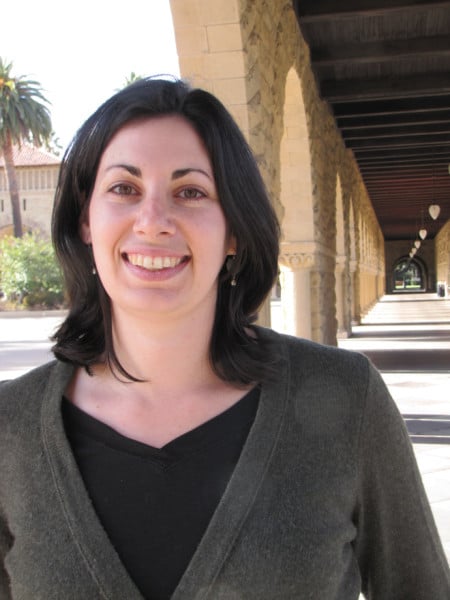The Stanford Daily is starting a new weekly feature of Stanford graduate students.
Lauren Benditt is a sixth-year PhD candidate in sociology with an interest in inequality and poverty. For our first edition of this series, The Daily talked with Benditt about the path to becoming a professor and the role of academia in teaching and social policy.
The Stanford Daily (TSD): Tell me about your department and the path you took to get there.

Lauren Benditt (LB): My undergrad degree is in history from Carleton College, and I have a master’s in public affairs from the University of Wisconsin. In between I was in politics and policy in the Midwest for a few years. My background is in public policy, and I was always interested in social policies and social issues — particularly education, inequality, and poverty. And that brought me to sociology as a discipline. I was interested in trying to understand better how we have such disparities across the U.S. in wealth and education. I always wanted to do a PhD. I really wanted to be a professor pretty much for the last ten or fifteen years.
TSD: What is attractive to you about being a professor, as opposed to continuing on in the political realm?
LB: Over my time at Stanford my interests have diversified and generally become more varied. I’m not sure that a career in academia is exactly what I want to do anymore — I do love teaching and working with undergrads, in particular. I would love to continue pursuing that after I finish. I also think there are ways to address some of the issues I’m really interested in — disparities in education, wealth, those sorts of things — by working outside of academia. I’m looking at a bunch of different options right now.
TSD: How has your opinion changed on becoming a professor, or the role of academia in solving some of these problems?
LB: I don’t know that [my perspective] on the means of addressing them through academia, industry or government has changed–I think I’ve just realized, in being a graduate student for six years, just how hard being a professor is . . . It’s an incredibly difficult field to get into . . . I thought that [being a professor] is the way one goes about teaching undergraduates. I now know there are many ways in which one can go about teaching. Being an adjunct is one opportunity; teaching people via mentoring or tutoring programs is another. There are ways to pursue that particular interest without being a professor, and there are ways of exploring some of my research interests without being in academia. I realized how much bigger the world is. When I came out of undergrad, I had tunnel vision. I thought, if I want to teach undergraduates and do research, I should be a professor. I now see opportunities I didn’t know existed.
TSD: Do you see a different value in the Ph.D. now than when you started out?
LB: I see a lot of personal value; I think after having worked on a dissertation for five or six years, there’s a lot of value in having learned about the entire research process start to finish, and having been able to do that.
TSD: What kind of community does the sociology department have?
LB: I’ve met a lot of amazing people. Everyone is incredibly smart, and they have so many varied interests . . . That’s one of the great things about sociology; it allows you to be interested in so many things and research so many things–understanding people and organizations and how they interact, which is pretty much all of the social world.
[…]
TSD: If you could only save one thing from your desk, what would you take?
LB: All the things in my office are things I’ve brought there, and they all have a fair amount of meaning for me. One of my friends in SF is an artist, and she provided me with some prints for my office that she made. They are bright and cheerful and they tend to keep me motivated somehow. I would love to keep my art.
Contact Fiona Kelliher at fionak ‘at’ stanford.edu.